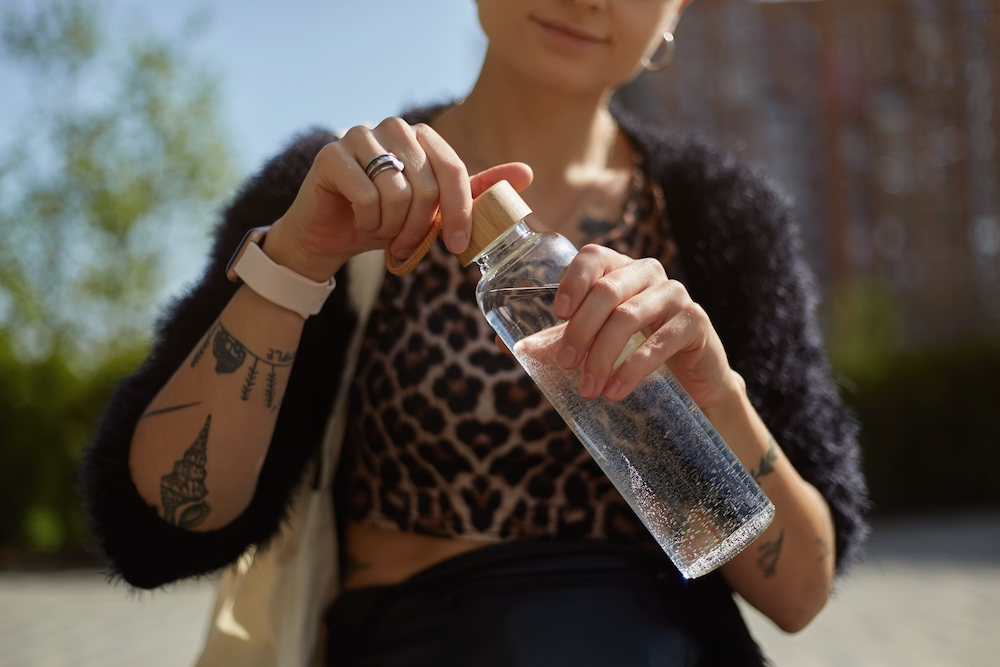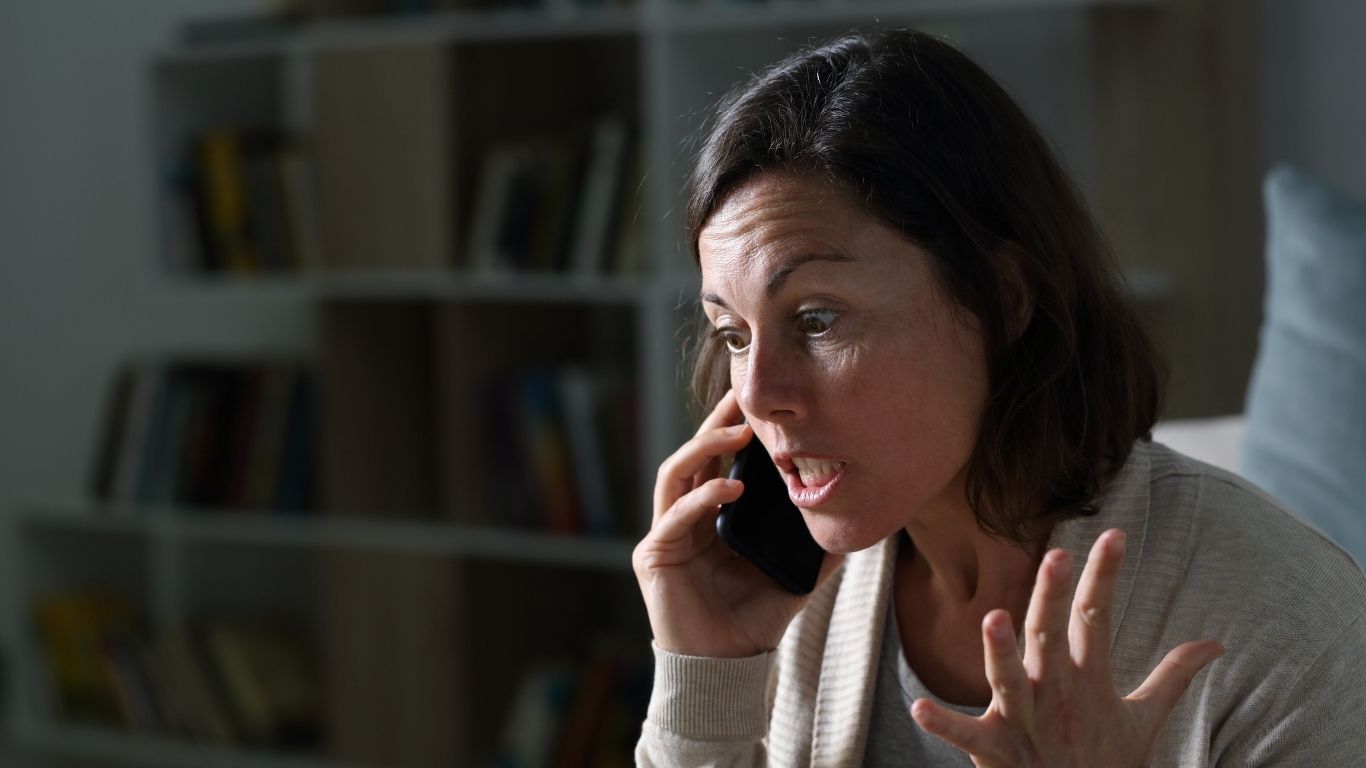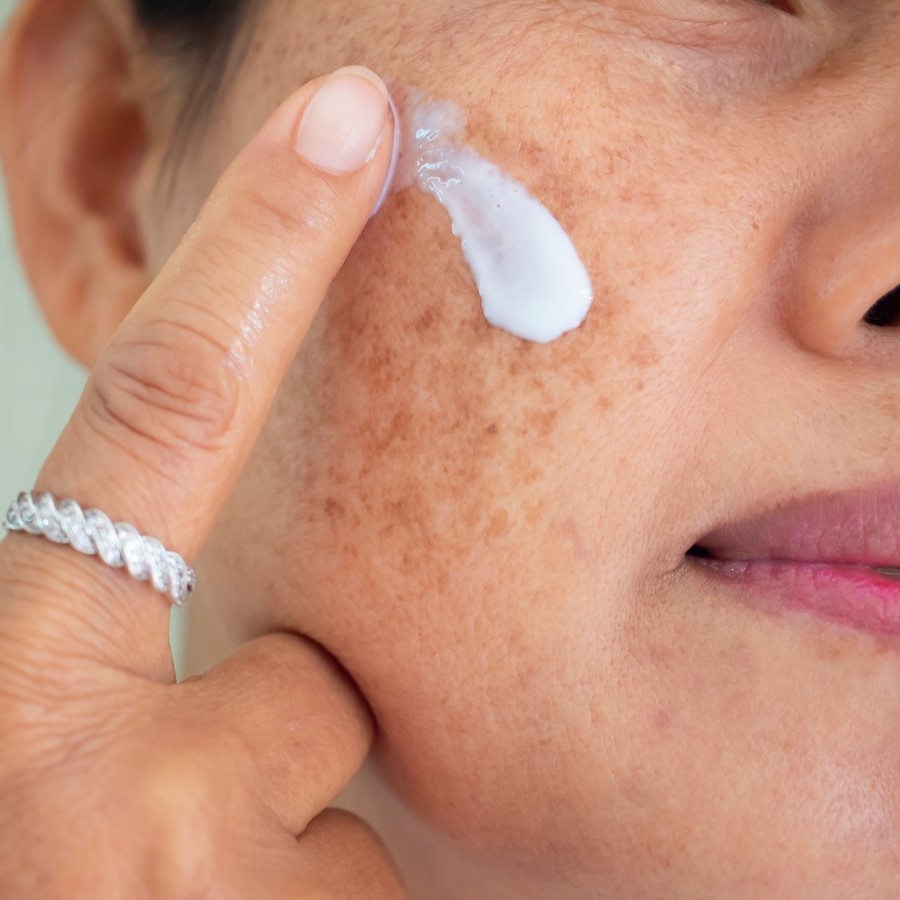Are you looking to take steps to become a sustainable beauty salon or spa? We talk to the salon and spa operators who have already made great strides in their business to be eco-friendly, sharing these easily implementable tips so you can do your bit for the environment too.
1. Make simple swaps
Mimosa Beauty in Chelmsford prides itself on being an eco-friendly salon. For owner Jennie Lawson it’s the everyday changes that beauty businesses can make that have the most impact.
“It’s honestly the really small things, it’s not hard at all; like changing all your light bulbs to LED,” she says.
The salon has done away with monthly magazines in its reception area and instead has a well-stocked library of hardback books for clients to flick through while waiting for their appointment.
“The other thing about having magazines is that some promote the attitude that there’s something wrong with you,” says Lawson. “I want clients to read material that helps them nourish their minds and bodies. We’ve got cook books, travel books, poetry and kids books too.”
Lawson also favours British-manufactured product houses, mainly because of the reduced carbon footprint in getting the products from where they’re made to the salon.
Mimosa works to reduce its own footprint by using a landfill-free recycling company that Lawson pays to ensure as much of the salon’s waste as possible is properly recycled.
“It all goes into normal bags in our normal bins – all the wax, tissues, paperwork, and so on, and they sort through it all.” As an incentive to think more consciously about waste, clients can bring old product containers into the salon to be recycled and get 5% off their next in-salon product purchase.
2. Set realistic goals
“Before starting to implement sustainable swaps, I’d first advise conducting an ‘eco-audit'," says Katie Millington, educator and former salon owner.
“Be realistic with the changes – if it fits to your budget and is easy to maintain, implement them as soon as possible. If you need more budget, put a plan in place as a more long-term goal.”
Often, some of the simplest swaps are also ones that can save you money, she advises: "We were all taught in college to use tissue for processes that we really don’t need. If you’re using tissue roll to provide a ‘clean’ workspace for your tools, could this be replaced with a wipe-clean tile or tray?”
3. Speak up
Change takes a village, so tell the people around you your plans. Raise awareness among staff and customers about the importance of sustainability.
Lydia Taylor from Evolve Organic Beauty says, "Provide tips on how they can contribute to environmental conservation efforts and encourage them to use sustainable transportation methods like carpooling, biking, or public transport to reduce carbon emissions."
4. Cut out plastics
Single-use plastics are traditionally one of the biggest culprits in salon and spa waste, but there are ways to combat their use. Titanic Spa in Huddersfield has banned single-use plastics; guests use recyclable paper cups rather than water bottles.
“We also have eco-friendly re-useable water bottles with the Titanic Spa logo that guests can buy and keep. These have sold extremely well so it’s been a cost-effective move, but it’s also encouraging that guests are engaged with our sustainability goals,” says managing director Warrick Burton.
Other simple things like putting recycling bins in obvious places can really help. “Being more eco-conscious can even be as simple as encouraging your guests to recycle. We provide recycling bins around the spa and in our spa apartments, and although we remain largely paperless by directing guests to our website and e-materials, our spa brochures are printed on recycled paper with vegetable ink dyes,” adds Burton.

5. Go paper-free with bookings and pricelists
Going paper free in your business is a great way to reduce environmental impact whilst saving money. Abbi Caraccio, owner of Asteria Wellbeing in Suffolk, suggests going digital to help you go green.
“With a huge amount of online booking systems that have come on the market over the last few years, they provide a considerably more eco-efficient way take bookings.
We have scrapped appointment cards and now clients receive emails and text messages to notify them of booked/rescheduled appointments. Online booking also encourages people to book other services which they may not have thought about before!”
6. Build sustainable partnerships
Find a sustainable charity or organisation to partner with so you can give back and support the movement towards a sustainable future with your business.
Ellen Lloyd, owner of Ellen Elizabeth Beauty in Ipswich, was the first beauty salon to join with Sustainably Run, an organisation primarily working with restaurants to plant trees in developing countries to help offset the environmental impact from businesses.
“It’s a super easy way to give back to the environment in an industry that can take so much. An automatic contribution is added to each bill. For every 99p collected, a tree is planted offsetting the environmental impact of the treatments, changing the lives of people in the developing world.”
It’s not just your business making an impact, but your clients too, with Lloyd encouraging that you let clients know how they’re helping you become more sustainable.
“My clients feel as good as they look when they leave the salon knowing they have done their bit too!”

7. Look at the whole business
It’s not only treatment products and supplies that can be swapped out for more environmentally-friendly alternatives. Samantha Davies, owner of Luna Organic Beauty Boutique in Cardiff, looked at every product used by the business and replaced as many as possible with substitutes that are better for the planet.
“We use 100% recycled bleach-free toilet paper manufactured in the UK, non-toxic cleaning products and organic non-chemical coffee and bleach-free tea bags from UK Fairtrade brand Clipper,” she says.
The salon also introduced biodegradable bin liners and overhauled its packaging and printed materials. “For product purchases, we use paper bags and tissue wrap sourced from suppliers that offer recycled paper stock options and have FSC-certification,” says Davies.
Even Luna’s aprons were an eco-conscious choice, made from organic cotton in the UK.
8. Get smarter about deliveries
There are many options to help streamline your deliveries and reduce oversupply. Taylor advises using tech solutions to help you work out what you need and when.
"Online booking systems can incorporate stocktaking software. Bulk order if possible and consider consolidating suppliers so you can get multiple items in the same delivery to reduce your carbon footprint."
9. Research product ingredients
Once you've been settled with a brand in your salon for a while, it's unlikely you'll think too much about what's going into its products. However, it's important to keep an eye on the sources that these raw materials are being taken from and whether they're being extracted in an eco-friendly manner.
"Look out for products that are certified as vegan and organic and that are biodegradable and free from harmful chemicals," suggests Taylor.
"You might also want to find a supplier that uses sustainable packaging like grass paper and glass jars."
You might also like:




